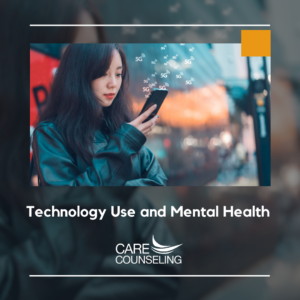Technology Use and Mental Health
 In today’s digital age, technology plays an integral role in the lives of students. While technology offers numerous benefits, such as enhanced learning opportunities and communication, excessive screen time can also have adverse effects on students’ mental health. As parents and educators, it is crucial to strike a balance between technology use and promoting mental well-being.
In today’s digital age, technology plays an integral role in the lives of students. While technology offers numerous benefits, such as enhanced learning opportunities and communication, excessive screen time can also have adverse effects on students’ mental health. As parents and educators, it is crucial to strike a balance between technology use and promoting mental well-being.
The Impact of Screen Time on Mental Health:
Excessive screen time, especially on smartphones, computers, and tablets, can affect students’ mental health in several ways:
- Sleep Disruptions: Late-night use of screens can interfere with students’ sleep patterns, leading to sleep deprivation and reduced overall well-being.
- Social Isolation: Excessive screen time may lead to decreased face-to-face social interactions, contributing to feelings of loneliness and isolation.
- Anxiety and Depression: Constant exposure to social media and online content can contribute to anxiety and depression, especially when comparing oneself to others.
- Reduced Physical Activity: Prolonged screen time can lead to a sedentary lifestyle, which may negatively impact physical and mental health.
- Impaired Focus: Excessive screen time can affect students’ ability to focus and concentrate on tasks, leading to academic challenges.
Strategies for Managing Screen Time:
- Set Clear Boundaries:
Establish clear guidelines for technology use at home and school. Create designated screen-free zones and times, such as during meals and before bedtime.
- Encourage Physical Activities:
Encourage students to engage in physical activities and outdoor play to balance screen time and promote overall well-being.
- Promote Mindful Technology Use:
Teach students to use technology mindfully by setting specific time limits for various activities and avoiding multitasking.
- Model Healthy Behavior:
As parents and educators, model healthy technology use. Show students how to prioritize face-to-face interactions and engage in screen-free activities.
- Use Parental Control Apps:
Consider using parental control apps or built-in device settings to manage screen time and block inappropriate content.
- Encourage Creative Activities:
Encourage students to explore creative activities like drawing, writing, or playing a musical instrument as alternatives to screen time.
- Monitor Social Media Use:
Discuss the potential negative effects of social media and encourage students to limit its use. Promote positive online behavior and discourage cyberbullying.
- Provide Support:
Offer emotional support to students who may be facing challenges related to technology use. Encourage open communication about their feelings and experiences.
Managing screen time for students is a vital aspect of promoting mental health and overall well-being. While technology offers incredible learning opportunities, it is crucial to strike a balance to prevent adverse effects on mental health. By setting clear boundaries, encouraging physical activities, promoting mindful technology use, and modeling healthy behavior, parents and educators can help students develop a balanced approach to technology and safeguard their mental health. Remember, creating a healthy relationship with technology is a lifelong skill that students can carry into adulthood and contribute to their long-term well-being.



























